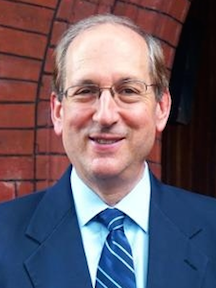I am consistently impressed with the dedicated volunteers on each of our 290 campuses who are inducting the next generation of members and adapting our traditions and programs to virtual environments. They have also played a significant role in the Society’s work to champion excellence in the liberal arts and sciences on campuses and in communities, locally and nationally, on Capitol Hill and in state capitals.
One aspect of the collaboration between chapters and the national office has grown as of late: we are reaching out to engage at the campus level as more institutions confront hard choices and as those choices threaten to undermine the possibilities for a robust arts and sciences experience.
Many schools are in the process of redesigning their curricula, reorganizing their faculties, and re-examining their academic goals. Some campuses perceive a need to provide a more “practical” form of higher education. Some are dealing with financial strains, stemming from limitations on tuition income and fundraising challenges. This has especially been a problem for the one-third of our chapters based at public universities—public funding for higher education has fallen steadily over the past decades; since 1987, state subsidy per student has dropped by roughly 25 percent.
When the vitality of the liberal arts experience on one of our campuses is under stress, we first reach out to our chapter officers. They are the best source of information as to what is actually taking place on campus and are essential for strategizing on next steps. Often, this leads us to contact the leadership of the university. In conversations with presidents, chancellors, provosts, and deans, we have been able to articulate the case for a vibrant liberal arts program. Schools are made aware of the potential impact of a restructuring on their ability to produce graduates who qualify for election to Phi Beta Kappa. We then communicate any understandings reached with the administration back to chapter officers; they are our representatives on campus who monitor events and help us safeguard the liberal arts at their institution.
There is not a single model for the liberal arts and sciences, and we are sympathetic with the need for change in higher education. But those colleges and universities that shelter Phi Beta Kappa chapters have made a substantial commitment to provide educational opportunities consistent with our mission, a program that equips graduates for meaningful, productive, and engaged lives. We will continue to work closely with our chapters and with the leadership of our campuses to advance these educational values and to remind them that a Phi Beta Kappa chapter is a mark of distinction to celebrate and support.
Frederick M. Lawrence
Secretary and CEO




